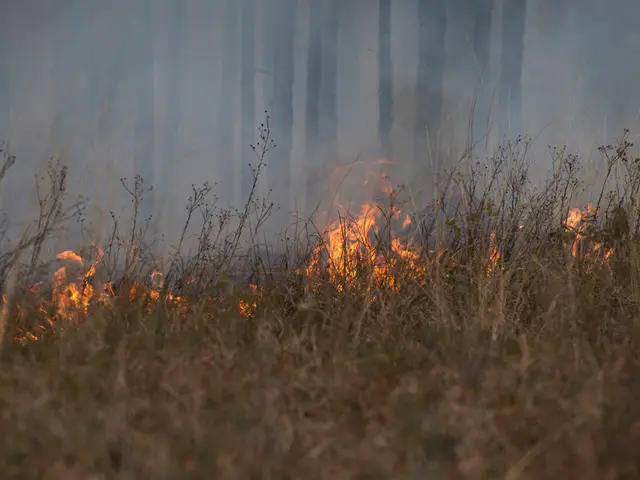Urgent Action Required: Saskatchewan Premier Requests Ottawa's Intervention Following China's Imposition of Additional Canola Tariffs
China Imposes Temporary Tariffs on Canadian Canola Seed
China has imposed a temporary tariff of nearly 76% on Canadian canola seed, escalating an ongoing trade dispute between the two countries. This tariff follows earlier Chinese duties on Canadian canola oil and meal, and is part of retaliatory measures amid broader tensions.
The potential impact on the Canadian canola industry is significant. The tariff has already caused the price of Canadian canola to drop sharply, wiping out millions of dollars in value for one of Canada’s most valuable crops. Canola exports to China, worth about $4 billion, are at risk, affecting approximately 200,000 Canadians directly employed in the canola sector and many more indirectly.
Saskatchewan, a key canola producer, produces 55% of Canada's canola. The move adds pressure on Canadian farmers just before harvest and could have cascading effects on the farming economy in the Prairie provinces.
Canadian officials and farmers reject China's dumping accusations and are calling for constructive government diplomacy to resolve the tariffs. China has indicated it could remove the tariff at any time, suggesting the tariff may also be employed as a strategic leverage ahead of Canada’s review of its EV tariff stance this fall.
Saskatchewan Premier Scott Moe is urging federal officials to take immediate action regarding this issue. Moe stated that the federal government should not sacrifice the canola industry to protect a fledging electric vehicle industry. He believes that the temporary nature of the tariffs presents an opportunity for Canada to engage ambitiously as the anti-dumping report and study is finalized. Moe expects to speak with Prime Minister Trudeau in the next 24 hours.
The probe found that Canada's agriculture industry, particularly the canola sector, had received "substantial" government subsidies and preferential policies. Moe called on Ottawa to work with the province and begin negotiating with China regarding canola tariffs.
Leader Carla Beck of the Saskatchewan NDP suggested using the trade office in China for a diplomatic mission to end tariffs on canola, pork, and peas. The Saskatchewan NDP also expressed concern that tariffs could crush farms and communities.
China is Canada's second-largest trading partner. The trade dispute between China and Canada over canola has been ongoing for a year, starting with Canada's imposition of tariffs on Chinese-produced electric vehicles last August. The new tariffs on canola are temporary and will be finalized after a probe into anti-dumping concludes next month.
[1] CBC News. (2021, July 13). China imposes 76% tariff on Canadian canola, escalating trade dispute. Retrieved from https://www.cbc.ca/news/business/china-tariffs-canola-1.6096351
[2] Global News. (2021, July 13). China imposes 75.8% tariff on Canadian canola, escalating trade dispute. Retrieved from https://globalnews.ca/news/8005711/china-tariffs-canola-canada/
[3] Globe and Mail. (2021, July 13). China imposes 75.8% tariff on Canadian canola, escalating trade dispute. Retrieved from https://www.theglobeandmail.com/business/article-china-imposes-758-tariff-on-canadian-canola-escalating-trade-dispute/
- The escalating trade dispute between China and Canada, as China imposes a temporary tariff of nearly 76% on Canadian canola seed, is part of broader tensions that extend to policy and legislation, war and conflicts, and politics, being a significant general news item.
- Amidst the escalating trade dispute, the new tariffs on canola will have an impact on Canada's policy and legislation, specifically agriculture policy, as the probe into anti-dumping allegations against the canola sector is finalized next month.
- Crime and justice, and specifically accidents, are concerns for the Canadian canola industry, as the sharp drop in the price of Canadian canola due to the tariffs risks wreaking havoc on hundreds of thousands of people directly employed in the industry and many more indirectly.
- In the midst of this unfolding crisis, Justin Trudeau, the Prime Minister of Canada, is expected to speak with Saskatchewan Premier Scott Moe in the next 24 hours, as news reports suggest that the strategic use of tariffs could be associated with China’s review of its EV tariff stance this fall.






